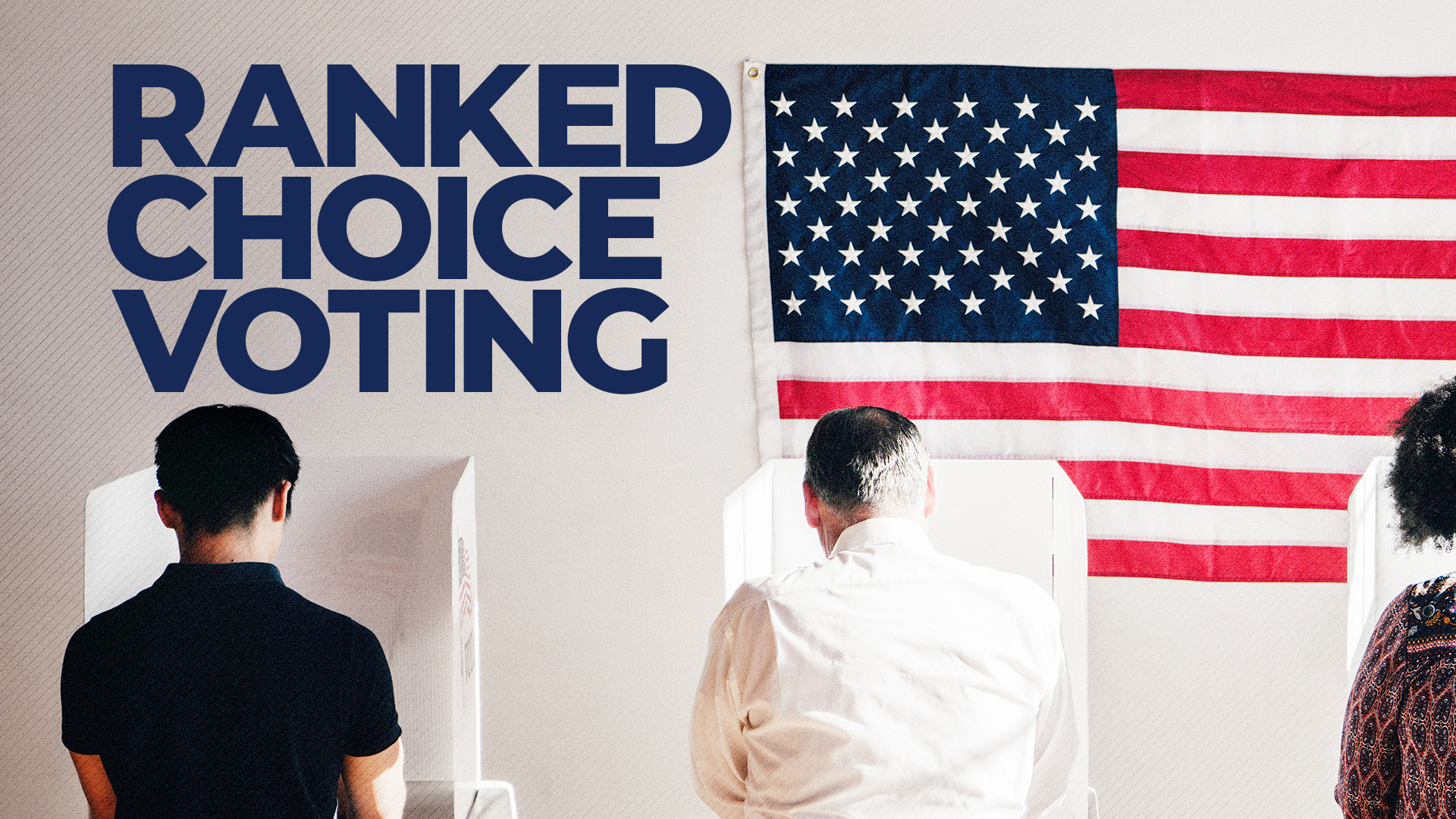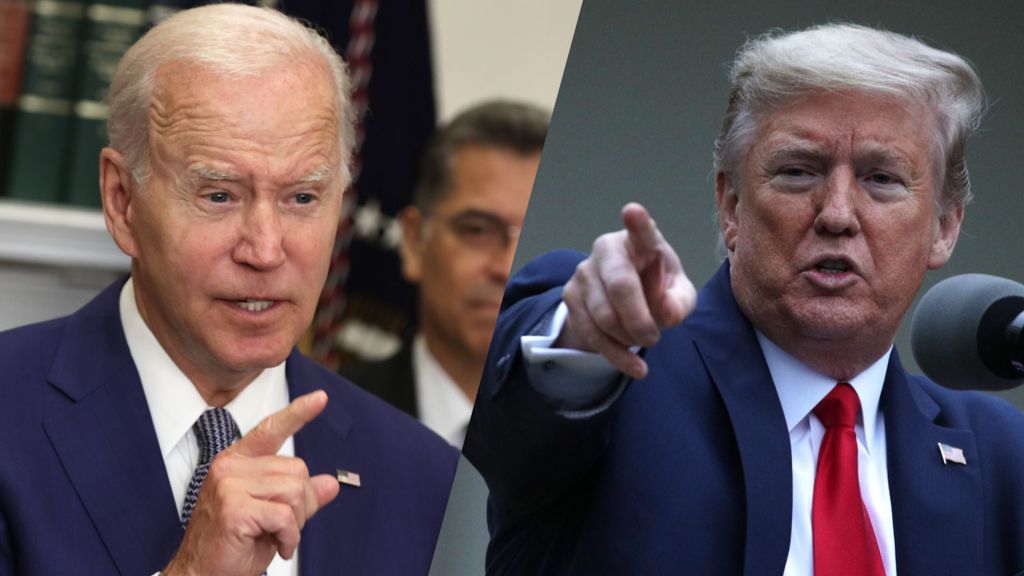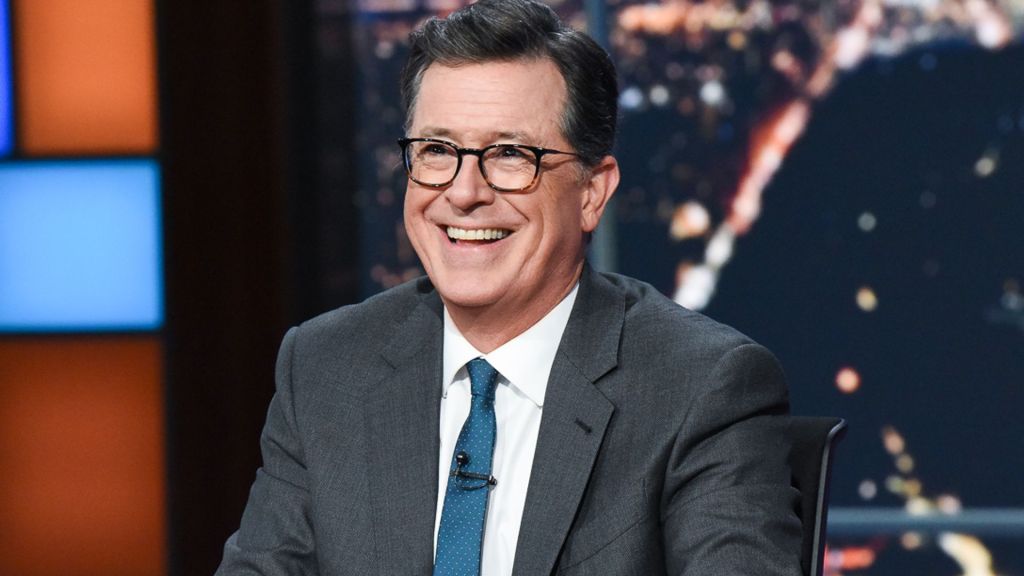
JIMMIE JOHNSON: IT’S A VOTING PROCESS THAT’S BEEN USED AROUND THE WORLD FOR CENTURIES.
BUT IN THE LAST TWO DECADES, AMERICANS HAVE ADOPTED THE SYSTEM IN SEVERAL CITIES, COUNTIES, AND STATES.
IT’S CALLED RANKED CHOICE VOTING – JUST THREE WORDS –
A PROCESS THAT RECEIVES PRAISE FROM SOME…
DEB OTIS: “We believe ranked-choice voting improves elections for everyone.”
JOHNSON: …AND CRITICISM FROM OTHERS.
SO, HOW DOES R-C-V WORK, AND WHY DO SOME DISAPPROVE OF ITS USE?
LET’S GET THIS STRAIGHT.
PRESIDENT TRUMP ENDORSED SARAH PALIN AHEAD OF ALASKA’S SPECIAL ELECTION THIS SUMMER…
AND SINCE PALIN’S LOSS, BOTH HAVE EXPRESSED FRUSTRATION WITH THE STATE’S NEW RANKED-CHOICE VOTING PROCESS.
PRESIDENT TRUMP: “You have that ranked-choice crapped voting. If you are in fifth place you get pushed. If you’re in third place you get pushed.”
SARAH PALIN: “Ranked-choice voting comes kicking in, and then it becomes convoluted, complicated like how many second-place votes you get? How many third-place votes did you get? I was telling people all along don’t comply.”>
JOHNSON: BUT ARE THEIR CRITICISMS ACCURATE?
DEB OTIS, DIRECTOR OF RESEARCH AT FAIR VOTE, A NON-PARTISAN ORGANIZATION THAT AIMS TO MAKE ELECTIONS BETTER FOR ALL, SAYS THE MOST COMMON CRITICISM OF R-C-V IS THAT IT’S JUST DIFFERENT.
OTIS: “It is a change to our elections at a time when we’re all extra weary of ensuring that our elections go smoothly.”
JOHNSON: HERE’S HOW RANKED-CHOICE VOTING WORKS.
INSTEAD OF JUST PICKING ONE CANDIDATE YOU’D LIKE IN OFFICE, YOU GET TO RANK ALL CANDIDATES RUNNING FOR A PARTICULAR SEAT BY CASTING YOUR VOTE FOR SECOND, THIRD, AND EVEN FOURTH CHOICES.
THE SYSTEM REQUIRES CAMPAIGNS TO BE STRATEGIC IN HOW THEY ATTRACT VOTERS AND GO AFTER OPPONENTS.
FOR THIS EXAMPLE, WE’RE GOING TO VOTE TO DETERMINE THE BEST MAJOR LEAGUE SPORT.
WHATEVER SPORT GETS MORE THAN HALF OF THE VOTES, THAT SPORT WINS.
BUT LET’S SAY THE VOTES WERE A LOT CLOSER.
WHOEVER HAS THE FEWEST VOTES WOULD BE ELIMINATED.
AND THIS PROCESS WOULD PLAY OUT UNTIL ONE SPORT RECEIVES MORE THAN 50 PERCENT OF THE VOTE.
IN THIS SCENARIO, THE NFL WOULD WIN.
WHILE SOME ON THE RIGHT HAVE CRITICIZED ALASKA’S USE OF RANKED-CHOICE VOTING, THE VIRGINIA REPUBLICAN PARTY USED THE SAME PROCESS TO PICK THEIR CANDIDATES LAST YEAR, INCLUDING NOW GOV. GLENN YOUNGKIN.
OTIS: “They’re looking to nominate candidates who have broad appeal among party voters rather than folks who splinter the field and maybe only appeal to one niche base within the party.’>
JOHNSON: AND THOSE ON THE LEFT AGREE.
FRANCESCA FIORENTINI: You don’t split the vote on ranked-choice voting. You just don’t that’s actually why ranked-choice voting is kinda great because it requires a lot more strategy. It requires you to run a more positive campaign, which I think can be good.”>
JOHNSON: THIS UPCOMING FALL, FAIR VOTE SAYS NEARLY A DOZEN CITIES AND COUNTIES AND THE STATE OF NEVADA WILL DECIDE WHETHER TO SWITCH TO RANKED-CHOICE VOTING.






